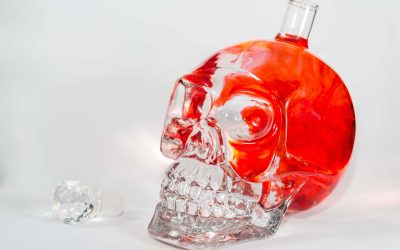Content
This implies that combination therapy, as a sequential relapse prevention strategy can be more effective than continuing https://ecosoberhouse.com/ antidepressants alone. Either CBT or PCT can be offered, as we found most robust evidence for these approaches.
- Know how you will ask for help and who you will contact to get ahead of the game.
- Recognize that you’re anxious and practice relaxation techniques.
- Behavioral treatments can be delivered in a variety of formats , settings , and vary in duration, frequency, and intensity.
- It can take one of these high-risk situations to occur and transition someone into a relapse.
The more specific your action plan is, the better, as this means you will be less likely to come within close reach of a relapse. Most often, a relapse prevention plan is a written document a person creates with their treatment team and shares with their support group. The plan offers a course of action for responding to triggers and cravings. The caring team of specialists at Opus Health are committed to helping you transition to a healthy, productive life – free of drugs and alcohol. By providing you with unparalleled support while you progress through the rehabilitation process, you will experience a premium level of comfort – so you can focus on getting the most out of your treatments. From there, you can begin to think about your potential triggers and your warning signs.
Remind Yourself That Urges Don’t Last Forever
Behavioral changes will allow you to recognize how you’re feeling, and channel that energy into positive holistic rituals such as meditation, exercise, or yoga. It’s a common misconception that relapse is an impulsive action that leads someone to start using. A single action cannot diminish all the work that is put into achieving this state of mind. This is not how relapse works, and it is not the way it should be viewed. In fact, there are several warning signs that can indicate someone is about to relapse. Elena Hill, MD; MPH received her MD and Masters of Public Health degrees at Tufts Medical School and completed her family medicine residency at Boston Medical Center. She is currently an attending physician at Bronxcare Health Systems in the Bronx, NY where she works as a primary care physician as well as part time in pain management and integrated health.
Everyone who has suffered from addiction has people, places, or types of environments that make them think about using again. The best way to deal with this is to identify your triggers so that you can avoid them. It is worth noting that occasionally thinking about using doesn’t necessarily mean that a person will relapse.
Marlatt and Gordon Relapse Prevention Model
Was not produced as a stand-alone treatment derived from theoretically based and empirically supported foundations. Instead, RP was created as a supplement to existing treatments to address as the treatment failures seen in other therapies for problematic behaviors often conceptualized as problems of self-control.
Does a relapse erase progress?
Relapse is a serious issue that should not be taken lightly, as not addressing it can result in straying further from a successful life in recovery. However, relapse does not erase your recovery progress or start you back at square one.
As a part of the recovery process, it’s vital to develop relapse prevention strategies. Whether you’re spiritual, religious, or even focused on physical health, these goals can help you recreate better habits that promote both health and wellness. One of the aspects of recovery is staying busy to help occupy and deter negative thoughts. Set daily, weekly, monthly goals for achieving a more healthy outlook. You can choose to eat better, practice yoga, go on daily walks, take up a new hobby, find peer groups that help support a sober lifestyle.
Realities of Addiction Relapse
Planning out this routine will help prevent feeling overwhelmed and leave little time for boredom or loneliness, big triggers for relapse. In the past 25 years, a new class of psychoactive medications has emerged that show substantial promise in the treatment of addiction disorders. These “anticraving” medications reduce desire for the drug or alcohol in detoxified patients and deter relapse into compulsive substance abuse.
- Relapse prevention is also a cognitive behavioral model in itself, but the basic concepts are widely used in addiction counseling.
- It is important to address any underlying issues that have been related to substance use and to work on increasing coping skills to prevent relapse.
- Addiction is a chronic disease that will persist no matter how much therapy is involved.
- Instead of expecting everything to be perfect, know that the holiday season will likely have some hiccups.
Rewarding yourself for any wins, taking time for pleasant activities, and being generous and positive with yourself – are some of the ways to avoid relapse. A relapse prevention plan is not something set in stone, but rather, a list of possible measures. Nonetheless, having the right mindset is crucial for any of them to work.
Wet Brain From Alcohol: Understanding Wernicke-Korsakoff Syndrome
The most common triggers include interruptions in taking regular medications, experiencing an increase in stress and substance use. For individuals with COD, resuming or increasing the use of substances as a response to stress often leads to an increase in their mental health symptoms and vice versa.
Therefore, they feel it is defensible or necessary to escape their negative feelings. The cognitive challenge is to indicate that negative feelings are not signs of failure, but a normal part of life and opportunities for growth.
Whether you’re attending a family function or you’re headed to an event for work, you should always have a backup plan and discuss it with your sponsor before heading out for the day or evening. Whatever the reason, push past it and go to your meeting anyway. Although there’s nothing wrong with resting, relapse prevention hours of free time can be filled with healthy and productive activities like exercising, volunteering or experimenting with a new hobby like painting. Mental relapse happens when our lack of self-care creates consequences that combine with other everyday problems and produce even bigger stressors.

This reaction is termed the Abstinence Violation Effect . Clinical experience has shown that occasional thoughts of using need to be normalized in therapy. They do not mean the individual will relapse or that they are doing a poor job of recovery.

